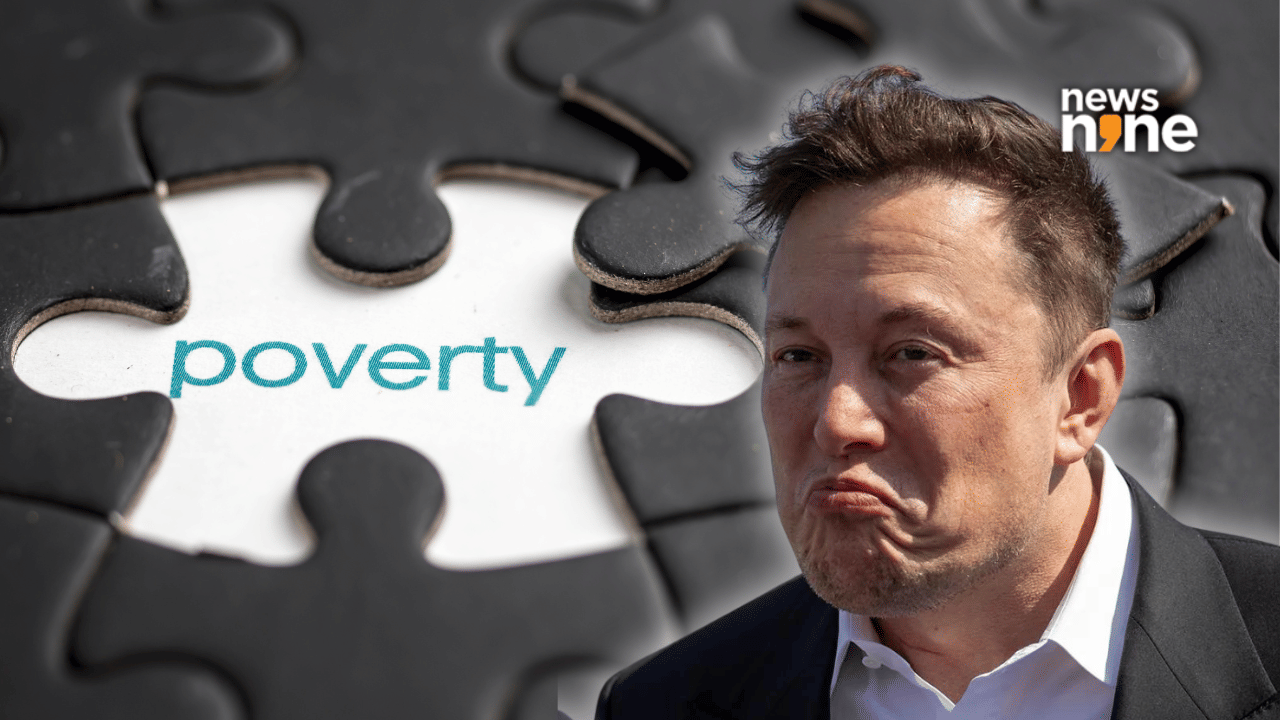New Delhi: Elon Musk used his appearance at the US Saudi Investment Forum in Washington to present one of his most sweeping predictions yet. The tech billionaire argued that poverty can be engineered out of existence, framing it as a technical challenge rather than a policy failure. His comments drew attention across the global technology community, mostly because of the scale of change he believes artificial intelligence and humanoid robotics will bring in the next two decades.
In a session that included Nvidia CEO Jensen Huang, Musk described a world where money fades in relevance, robots handle physical labour and human employment becomes optional. The remarks echoed the post scarcity science fiction he has referenced before, and they pushed the conversation into territory that even many AI researchers consider far ahead of current progress.
Poverty is an engineering problem https://t.co/cTmpzfwCz1
— Elon Musk (@elonmusk) November 19, 2025
Musk calls poverty an engineering challenge
Musk told the forum, “I see poverty as more of an engineering problem than an unsolvable social issue.” He stated that xAI’s Grok model and the Optimus humanoid robot could “solve the labour shortage, drive costs to near zero, and create a future where poverty is statistically irrelevant.”
According to Musk, the next 10 to 20 years will see accelerated restructuring of global economies. He added that full scale automation will shift work from a necessity to a voluntary activity. Musk explained this with a simple comparison, saying work will resemble home gardening, where people often grow vegetables not for survival but for personal interest.
He also reiterated his belief that “AI and humanoid robots will actually eliminate poverty,” suggesting that advanced systems performing complex tasks will push down the cost of essential goods and services.
The idea of money becoming irrelevant
Musk expanded the argument with a claim that currency itself could lose meaning in a highly automated future. He said, “Currency becomes irrelevant” and pointed to physical limits like electricity and mass as the only real constraints.
He referenced science fiction author Iain M Banks and the Culture series, saying it gives “a sense for what a probable positive AI future is like.” Musk’s interpretation places AI at the centre of a post scarcity environment where abundance is the default condition.
He linked the transition to Tesla’s humanoid robot Optimus, which he has frequently cited as the key driver of long term economic change. At a recent investor meeting, he said, “There’s actually only one way to do that, and that’s with the Optimus robot.”
Income systems and the social shift ahead
Musk has been vocal about the need for governments to prepare for new income models. On a recent podcast conversation with Joe Rogan, he said societies will require both universal basic income and universal high income. He argued that a fully automated world will allow “anyone can have any products or services they want,” though he also warned that “there will be a lot of trauma and disruption along the way.”
His remarks highlight a growing divide in the AI debate. While many researchers focus on safety, employment displacement and governance, Musk continues to emphasise AI’s role in producing abundance.
Why the comments resonate now
The forum brought together technology leaders at a moment when many economies are preparing national AI strategies. With Nvidia, Tesla and xAI shaping large parts of the global AI supply chain, Musk’s predictions carry influence, even if the timelines remain uncertain.
The vision he described raises questions about labour markets, economic design and the cost of living. For India and other developing economies, the idea of work becoming optional sits far from present day reality. Yet early signs of automation in logistics, manufacturing and retail suggest that the structural changes Musk predicts may already be underway in small increments.
What remains unclear
Musk’s argument rests on rapid progress in robotics, which remains one of the harder areas of AI. While large language models have scaled quickly, humanoid robots performing complex everyday tasks are still in early stages.
Even so, his comments indicate a future shaped heavily by automation. The difference now is that the conversation is no longer academic. Countries, regulators and companies are preparing for major shifts triggered by AI. Musk’s prediction of an engineered solution to poverty fits into that larger debate, raising both possibility and uncertainty about the decades ahead.
With Agency inputs
